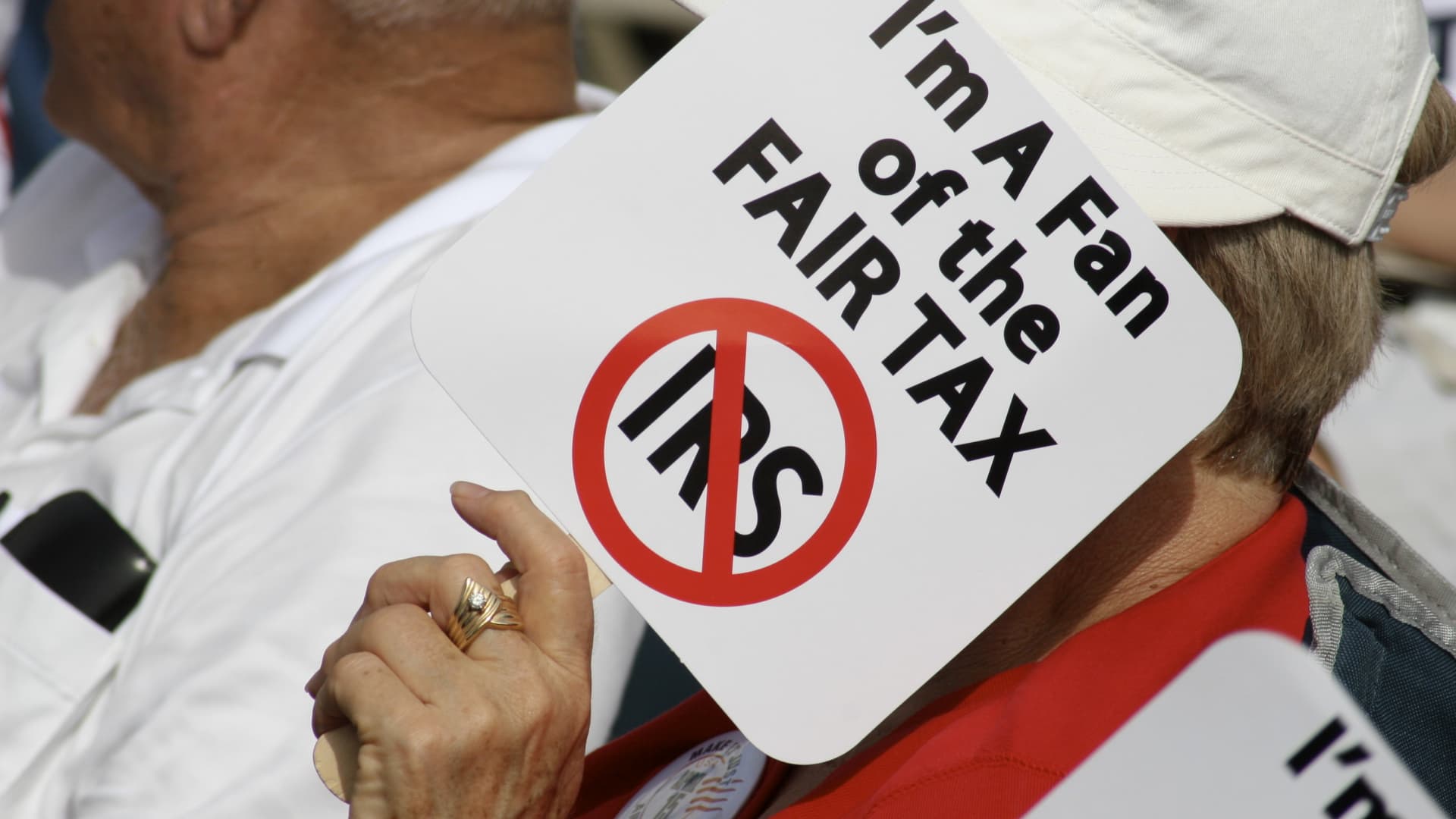Products You May Like
A group of House Republicans is revisiting the Fair Tax Act, which would replace certain federal levies with a national sales tax and decentralize the IRS.
While the plan may not get a floor vote and wouldn’t make it through the Democrat-controlled Senate, policy experts say the plan would make the tax system more regressive, meaning the burden decreases as income gets higher.
Introduced in early January, the proposal would eliminate income, payroll, estate and gift taxes, to be replaced with a 23% national sales tax. The proposal also aims to decentralize the IRS by slashing the agency’s funding, relying on individual states to administer the levy.
While the plan was first introduced in 1999, it’s never been given a floor vote, and has only been supported by a small group of Republicans, said Erica York, senior economist and research manager at the Tax Foundation.
“It’s not a mainstream or popular tax reform idea,” York said, noting the administrative side “doesn’t make a lot of sense” because it would involve 51 state agencies rather than a single IRS.
It’s not a mainstream or popular tax reform idea.Erica YorkSenior economist and research manager at the Tax Foundation
The reintroduction of the Fair Tax Act comes amid increased scrutiny of the $79.6 billion in IRS funding, enacted through the Inflation Reduction Act in August. The money has been earmarked for priorities such as enforcement, taxpayer service, technology upgrades and more.
After months of critique, House Republicans in January voted to rescind the funding. But the plan was largely seen as political messaging since neither Senate Democrats nor the White House supported the measure.
A ‘pretty significant’ tax hike for the middle class
While the Fair Tax Act isn’t likely to gain traction in Congress, experts say the plan would be a significant change for middle-income earners and the wealthiest Americans.
If it were enacted, middle-income earners would see a “pretty significant tax increase” and the wealthiest Americans would see the biggest cuts, according to John Buhl, senior communications manager at the Tax Policy Center.
He said the plan would make the tax system more regressive, despite the built-in monthly rebates for families below a certain income level, especially since the 23% rate is “tax-inclusive” and will actually cost consumers about 30%.
What’s more, both experts say the sales tax wouldn’t be enough to make the plan “revenue neutral,” which may be an issue as Republicans fight for tightened spending amid the debt ceiling battle.
